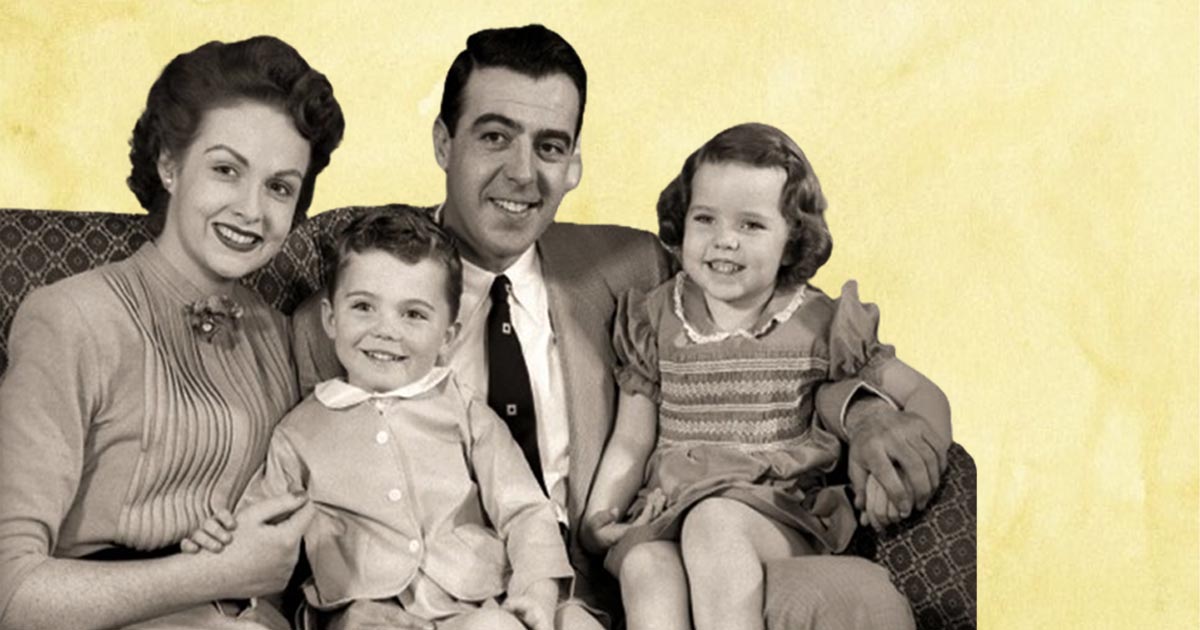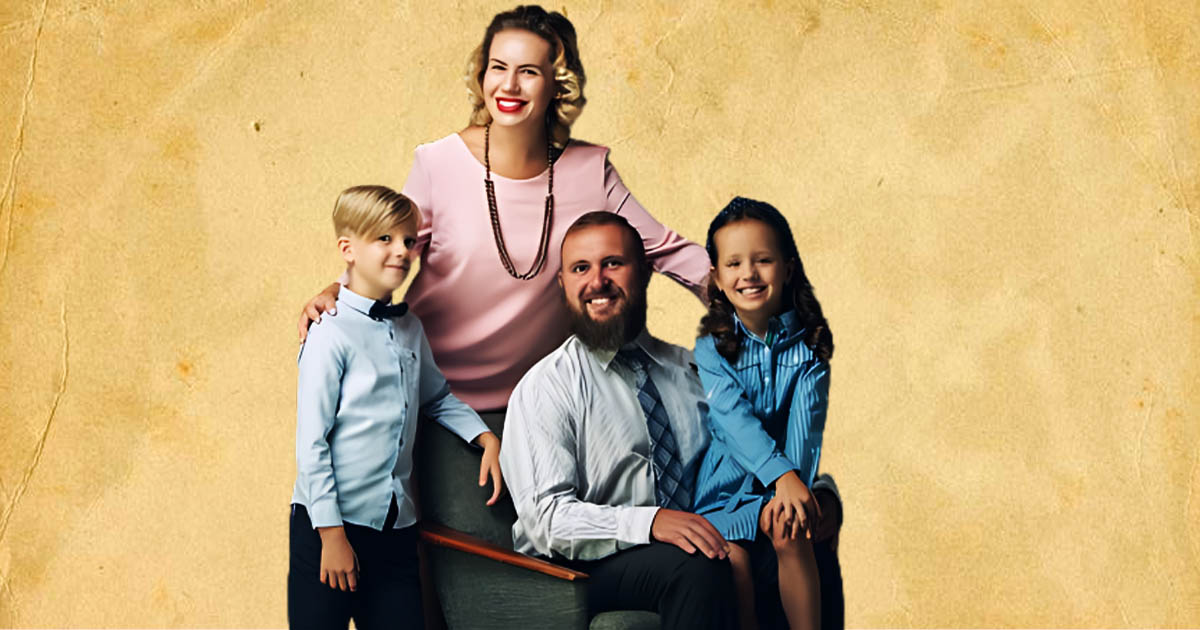In the journey of parenting, there is the role model parent who acts as a guide and inspiration not only to their children but also to society at large. Being real, understanding, and upright creates space for kids to become strong-willed individuals with empathy toward others in the future.
Let us think about exemplary parenting today in terms of what it means going forward tomorrow. We must therefore endeavor to be such parents as our kids require us to be so that they can pass on love, compassion, and resilience throughout many ages still unborn.
As we travel along this path called being parents from my family end yours; let it be filled with happiness, knowledge, and countless chances for igniting greatness into the hearts of those little ones who call us mom or dad.
Why is Being A Role Model Important?
Parents need to be role models because children learn best by seeing and imitating. As for the kids, their mothers and fathers are their first teachers and also have the most influential power over them.

Here’s why being a good role model parent is important:
1. Learning Behavior:
From an early age, children watch closely what their parents do or how they react in certain situations to create a template for their behavior. If moms and dads always display positive conduct like honesty, empathy, and perseverance; kids take these qualities as normal.
For example, when a parent admits that he/she was wrong about something being true it teaches his/her child about accountability as well as integrity through truthfulness. Likewise; if one person shows care toward others’ feelings this will nurture understanding among many individuals thus creating a humane society at large.
Thus we can say that boys and girls learn from various patterns adopted during everyday life which makes them social beings with an inner sense of right and wrong depending on what they were taught by their parents while still young.
Therefore, there is no doubt that parents are the initial moral educators whose impact cannot be underestimated.
2. Values And Ethics:
More than anything else parents are responsible for instilling necessary values and morals into their offspring’s minds through practical examples set by themselves during decision-making processes. Each interaction whether intentional or not becomes a basis upon which kids differentiate between good and bad.
For instance, if mom or dad chooses to spend time with loved ones instead of buying expensive gifts this implies that love should be shown through actions rather than material possessions thereby establishing healthy relationships within families.
Similarly; those who respect diverse inclusive environments will always embrace different cultures as well as backgrounds which foster peace among communities living side by side.
Therefore when talking about integrity fairness honesty justice all these virtues must be lived out daily by every parent who expects his/her child to grow up having strong principles. Teachers alone cannot bring up morally upright citizens without support from home hence the need for moms and dads to act ethically at all times.
3. Social Abilities:
Various social skills are learned by children through seeing and imitating their parents’ behavior in different social settings. Parents are examples of effective communication, conflict resolution, and relationship building from simple interactions at home to more complex situations outside.
For example, a parent who listens attentively to his or her child’s worries is teaching them how important it is to be empathetic when communicating with others. Similarly, mothers and fathers who show assertiveness or set boundaries help their kids learn self-advocacy without being rude about it.
This means that by showing what healthy relationships look like and how people should relate with each other; moms and dads can give their sons/daughters enough self-assurance plus competence necessary for mingling well in the society which has many cultures around us now.
Therefore, positive role models should have good interpersonal skills to equip children with the abilities they need while dealing with others of different backgrounds during various stages in life such as school years up until working age when we all know our colleagues come from diverse places across this planet!
Positive role models are invaluable teachers who can pass on morals/values thereby shaping young ones into upright citizens able to care about those around them.
Read More: Technology on Childhood Development: Exploring the Pros and Cons
10 Characteristics Of Role Model As A Parent
Not only do they take care of their children, but they also contribute to society by possessing certain qualities and principles.

These are the ten factors that represent parent role models; each being a foundation for creating positive change as well as resilience in kids.
1. Realness:
To be authentic means to be oneself and live according to one’s beliefs; this is what a good parent does.
In addition, he or she speaks the truth even with its ugliness while at the same time taking responsibility for personal errors thereby promoting self-love through example setting. They create safe spaces where their children can express themselves freely by being real.
2. Empathy:
Parents who act as role models have great empathy which enables them to understand and relate well with their kids’ feelings.
Such parents listen actively, validate emotions shown by their children, and put themselves in others’ shoes thus fostering deep emotional connection based on sympathy.
Through such understanding, parents teach children how important it is to be good friends who care about each other’s needs and emotionally intelligent relationships building among peers.
3. Resilient:
Role model parents show resilience as they move through life’s problems with elegance, hopefulness, and resolve. They take a setback as an opportunity to teach endurance and resilience in the face of difficulty.
In sharing their own stories about being strong and overcoming barriers, they encourage their children to become tough, determined individuals who always look for the positive side of things and who know that success in life must have such an attitude.
4. Integrity:
Consistently acting by one’s values and principles is what we refer to as integrity in role-modeling parenting.
A parent who lives by this virtue behaves honestly, fair-mindedly, and responsibly when dealing with others thereby making themselves trustworthy before their children.
They set moral standards which include honesty coupled with teaching kids why integrity matters most during various stages or events in life.
5. Empowerment:
Parents can act as role models by giving power back into the hands (independence), mindsets (autonomy), and belief systems (self-confidence) of their children too.

They offer directions but at the same time, they let them think on their own, and make choices based on personal desires while urging them not only to have goals but also to pursue them passionately without giving up easily.
Even if things get tough along the way thus molding a sense agency/self-efficacy so that kids can boldly face challenges head-on knowing pretty well how capable they are+ more energized self-belief system needed for personal success will be available.
6. Inclusivity:
Recognition should be given to different cultures, ethnicities, religions abilities etcetera by inclusive parents who are good examples because all people were created equal before God. To instill inclusiveness within offspring minds.
Empathy or understanding other people’s feelings becomes crucial hence fostering respect as well acceptance irrespective of where someone comes from or his/her identity according to these moms & dads worth emulating.
Such parents would talk more about diversity rights, equality among nations/communities, and fairness thereby creating a better world for everyone.
7. Lifelong Learning:
Parents who serve as examples prioritize lifelong learning and intellectual curiosity. They show that education, personal growth, and self-improvement are important by exemplifying those values themselves.
They also allow their children to try new things, learn more skills, and study different subjects. In addition, these parents teach through showing an interest in everything around them which heightens a sense of wonder in their kids.
8. Generosity:
Role model parenting places great importance on being generous with others so as to leave a positive impact on society at large; thus becoming one of its key features.
Generosity is shown by parents when they are kind or helpful towards other people who may be less fortunate than themselves.
Role models also demonstrate this virtue through acts of charity or philanthropy such as volunteering time or giving money to those in need. These actions help children understand how important it is to care for others who may not have as much while still having empathy for them too.
9. Boundaries:
Parents acting as role models set boundaries that are both clear and consistent which create safety within the family unit while promoting respect for oneself and others outside it too.
They teach their children about healthy relationship limits so that they will know what is acceptable or unacceptable behavior from people around them; additionally encouraging self-assertion skills among kids whereby they can assertively communicate where their lines lie when dealing with peers etcetera.
Enforcing rules consistently over time without fail even once leads to the establishment of a secure environment characterized by love, care, and firmness – this ensures children feel secure because they know what will happen next if rules aren’t followed
10. A Well-Rounded Lifestyle:
Being role models, parents put their physical, mental, and emotional well-being first thereby teaching healthy habits and self-care to their children. They show how it is important to have a balanced life while dealing with various demands of life.
Children learn that they should also take care of themselves by prioritizing their health from parents who practice self-love through setting aside personal time, work, and family among other things.
Read More: How To Raise Independent Kids: 10 Effective Tips For Parents!
A Word From Mind Family
Kids are motivated to adopt good practices for overall health such as sleeping enough or eating right when they see what their moms or dads do. Because of this, offspring can establish healthy routines that contribute towards their resilience in life.
Role model parents pave the way for compassionate individuals who can handle anything that comes their way in future generations through society-building and humane character development.
These people touch many lives outside the immediate family unit because of being real with themselves as well as others; feeling another person’s pain alongside them thus creating ripples of positive change that go beyond one household only.
Frequently Asked Questions (FAQs)
Why is being a role model important for parents?
Parents serve as the primary influencers in their children’s lives, shaping their behavior and values through their own actions. Children learn best through observation and imitation, making parental role modeling crucial for instilling positive behaviors and moral values.
What are the key characteristics of a role model parent?
Role model parents exhibit authenticity, empathy, resilience, integrity, empowerment, inclusivity, commitment to lifelong learning, generosity, setting boundaries, and prioritizing a well-rounded lifestyle. These qualities create a nurturing environment conducive to the healthy development of children.
How do role model parents impact society?
Role model parents contribute to the fabric of society by raising compassionate, resilient, and responsible individuals who positively contribute to their communities. Through their exemplary actions and values, they inspire positive change and foster a culture of empathy, inclusion, and integrity.











